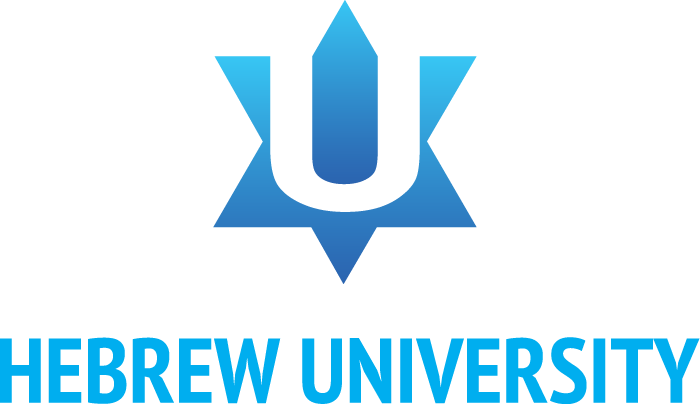
A doctor of the educational and leadership program is designed for individuals to pursue management positions in their practicing profession. The doctor in educational and leadership requires a minimum of 60 credits above the certificate of advanced study. Programs are divided into two main categories that need to be met by every student. The first category entails administrative cores with 15 credits. The second category involves research in an educational leadership program with 15 credits. The third one, which is not among the main types, is bout research where a student will need to meet a minimum of 21 credits since it entails the electives. Experimental learning has the remaining section of credits. All subjects with codes from EDU 7000 to 8005 are compulsory, with a total of 15 credits. Students will have to meet the requirements to be awarded the doctorate. Subjects with codes from EDL 7100 to 7070 are compulsory units with a total of 30 credits.
Students who do not meet the qualifications for experimental learning must adhere to the generic program. The courses are distributed for a total of 12 terms for the total study duration. A minimum of one unit or class can be taken in a while a maximum of six units in a single word. The types are made in the order they appear within the distribution. No unit will be carried forward to the next term since they are systematical.
Dissertation research courses are divided into four main phases that are mandatory for every student with an intent to pursue the course. In the first phase, there is a course with code EDU 8001, where students will present a research proposal on a dissertation from the provided guidelines. The second phase, which is dissertation research, where students show their annotated bibliography and literature review. Step three, students will present their research draft with statistics to supervisors at the department. In the final phase, students will submit their research in draft format to their supervisors, where discussions and defense will begin.
Before the beginning of the research, students must have met the pass marks in the examinations for candidacy advancement. The administered exams consist of essays that discuss courses listed under advanced study. Exams conducted are read by the department and assessed for quality and relevancy of content. For a candidate to receive the degree advances, they must pass the reviews conducted under their respective departments. The experimental learning needs an extended document discussed and presenting the outcomes from candidates’ research. Oral presentation and successful defense before the committee and supervisors are the evidence of program completion. Project planning takes place at EDU 8005, which is the dissertation presentation. The project finalization is done at EDU 8004, which is the final stage for research and defense.
Students who take six or more hours in studies per semester are eligible for the awards of graduate fellowship. For a student to meet course transfer, they need a maximum of six hours of appropriate complete coursework. A student with one doctoral program is eligible for transfer to another or admitter to the educational leadership. Academically, students are expected to maintain a minimum of 3.0 as aggregate and average points in all the courses. No courses exceeding two with a grade of “C” earned that can be applied towards the degree award. Students must meet the requirements of project defense for the conferment of doctorate degrees. The course entails specificity in the area of leadership and educational management.
Career & Outcomes

With a Doctor of Education, education professionals are prepared to pursue professional, academic, administrative, research, or clinical positions in the K–12 setting, higher education, private organizations, public institutions, and civil service. A sampling of career options includes: School Principal – School principals manage daily school activities, coordinate curricula, and oversee teachers and other school staff to provide a safe and productive learning environment for students. The median annual wage for elementary, middle, and high school principals was $95,310 in May 2018. Superintendent – As the top executive of a school district, a superintendent oversees educational programs, spending, and facilities as well as hiring, managing, and supervising the staff of all educational facilities within the school district. The median annual wage for school superintendents was $159,352 in May 2019. Education Administrator – Administrators direct and coordinate activities of teachers, administrators, and support staff at schools, public agencies, and institutions. The median annual wage for education administrators in colleges, universities, and professional schools was $95,310 in May 2018. University Professor – In addition to teaching, professors conduct research and publish scholarly articles or books, design their own curriculum for the classroom, and consult and advise students individually. University professors earned a median annual wage of $78,470 in May 2018. Curriculum Instructional Specialist – Through a blend of learning and organizational theory, educators can develop expertise in the latest research and best practices in curriculum design, professional development, and program assessment. Instructional coordinators help improve learning outcomes for students from the district level up to the federal level as well as for employees in corporate training programs. In May 2019, curriculum specialists earned a median annual wage of $73,910.
Program Outline:
3 Credits
Course Description:
This course will enable graduate students to develop their scholarly voice through a methodical writing process. The graduate students will identify the difference between various stages of the writing process and apply graduate academic writing strategies and techniques.
3 Credits
Course Description:
In this course, graduate students will acquire the necessary skills to apply the different methods of research as well as to identify the research process withemphasis on practical applications and skill development.
3 Credits
Course Description:
This is an introductory exploration of statistics for graduate students. It includes instruction on the calculation, use, and implementation of descriptive statistics and inferential statistical analysis in education.
3 Credits
Course Description:
This course provides a review of qualitative methods for studying human behavior, including theory, narrative analysis, and case studies.
3 Credits
Course Description:
In this course, graduate students will become familiar with the legal issues pertinent to teachers, administrators, and students’ legal rights and responsibilities. Students will also review structures of the law, processes, legislation, and practices to avoid liabilities.
3 Credits
Course Description:
In this course, the student capacity and the organization’s capacity must be developed to achieve organizational goals. Graduate students will analyze their organization to assess internal and external capacity and critically evaluate their role within the organization as it relates to capacity.
3 Credits
Course Description:
Graduate students will gain an understanding of the complexity of moral dilemmas through critical analysis and application of ethical principles. Hypothetical and real ethical scenarios and the decision will be critically considered and discussed for the students to develop practical decision-making skills and to be able to understand the criteria by which the soundness of those decisions is to be judged.
3 Credits
Course Description:
This course examines conflict management processes and skills with an emphasis on interaction patterns, interpersonal relationships, and communication skills. The graduate students will examine the nature of the conflict, its sources, and types as well as methods of proactive intervention, conflict resolution, and effective strategies in the educational setting.
3 Credits
Course Description:
This course explores the theoretical framework and practical applications of supervision and leadership within the economic, social, political, and educational context of institutions. Graduate students will develop a conceptual paradigm of practice to sustain reflection, build competence, impart effective supervision, and promote change.
3 Credits
Course Description:
This course provides an examination of historical and contemporary theories, models, concepts, and practices for efficient approaches to leadership within different organizations.
3 Credits
Course Description:
In this phase, the graduate students will present a complete proposal for their dissertation following the guidelines and instruction provided in this course. The dissertation topic must be presented and approved by the program mentor/advisor during the first term.
3 Credits
Course Description:
In this phase, the graduate students will present an annotated bibliography and literature review to support their dissertation.
3 Credits
Course Description:
In this phase, the graduate students will present a rough draft of their research method, design, procedures, statistical analysis, and expected results.
3 Credits
Course Description:
In this phase, the graduate students will present a rough draft of the final graduate research to be reviewed and discussed with the assigned faculty or dissertation mentor.
15 Credits
Course Description:
In this course, the graduate students will complete and present their professional doctorate dissertation for final evaluation and review. The course addresses the University dissertation process and requirement. The course is divided into 4 phases; each phase addresses a section of the dissertation.
15 Credits
Course Description:
This course provides graduate students with an overview of the research process as well as an opportunity to learn about educationalresearch methodology and the components of the dissertation.
Total Credits Hours
60
Disclaimer: Hebrew University and Jewish University System (JUS) reserve the right, because of changing conditions, to make modifications of any nature in academic programs and requirements of the university and its constituent colleges without advance notice. Students are advised to consult regularly with an academic advisor concerning their programs of study.


